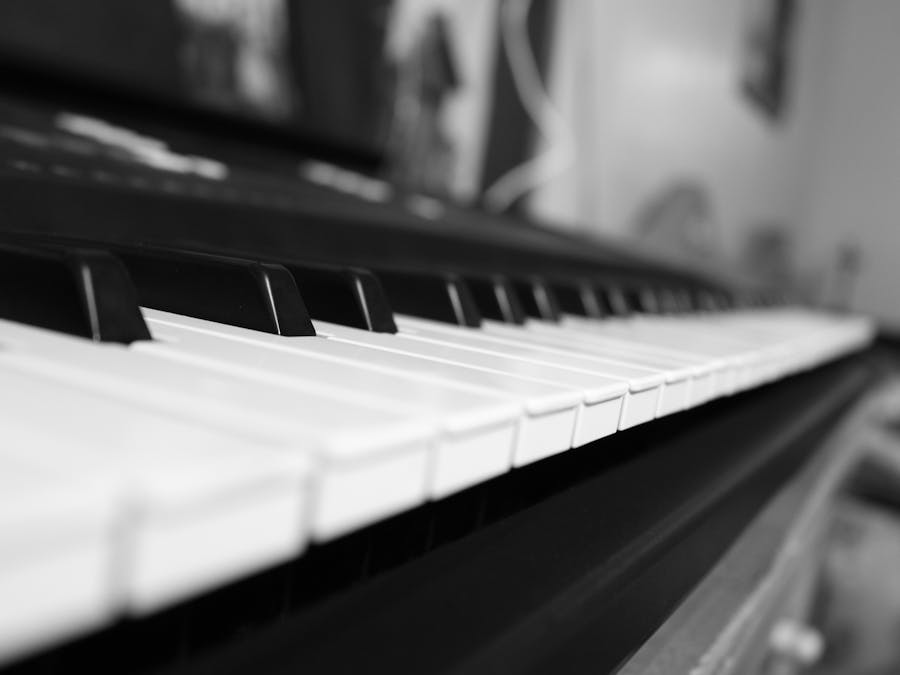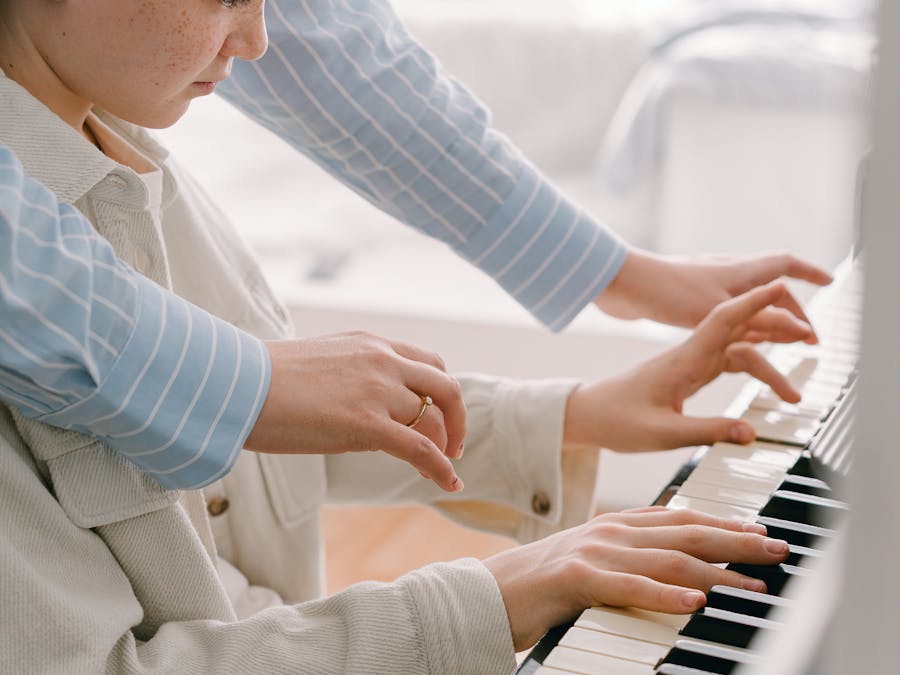 Piano Guidance
Piano Guidance
 Piano Guidance
Piano Guidance

 Photo: Marta Wave
Photo: Marta Wave
A few telltale signs that you might be playing too much, or that your body needs time to recover before diving into an hour long practice are: Sore, cracked hands, if your fingertips are too sore or painful to play effectively, if your fingers feel achy or sore a day or two after your last practice.

Any scale (123,12345,54321,321 or 1234,1234,4321,4321) would logically end on the same finger. Playing scales in multiple octaves: This meaning...
Read More »
The piano is arguably the easiest musical instrument for kids to learn and there's a ton of easy songs to learn. It's a great way to introduce...
Read More »Is it possible to play the piano too much? At first thought, you might think, no way! And for the most part, we’d agree, it is pretty hard to do something you’re passionate about too much, however for those who are practising for hours and hours on end, there may some risk in playing too much that you might want to be aware of. Now, when we say risk, we really mean pain or discomfort. Thankfully, few of us do physically have the endurance to be able to literally play until the skin of our fingers files down to the bone, however over practising certainly is a problem that can dampen your passion for learning and if left unchecked, can lead to cramping, seizing up of the hands, arthritis and leave you with an overall sour taste in your mouth towards your piano. We see this most commonly in those who are perhaps dealing with stress or are nervous, namely those preparing for exams and are perhaps worrying about their performance - for this, we’d highly recommend our guide to the ABRSM grades and how to relax before your exam, also if it’s playing in front of others that you are worrying about, read our guide to overcoming the fear of playing in front of others here.

The CT-S1 is the latest addition to the Casiotone line of digital keyboards, which are designed with the concept of “Make Music, Anytime,...
Read More »
There are a total of 8 grades in the ABRSM piano exams, where grade 1 is the easiest and grade 8 is the hardest. Each grade tests you in the...
Read More »The final thing to consider is how much endurance and strength your hands have build up. For example if you are a total beginner, you should be praticing for no more than 10-30 minutes a day to effectively take in the information you are processing. For those who are a little more advanced, then you likely will be able to practice for an hour or two before fatiguing or needing a break. As mentioned, it’s more likely that your hands (or mind) will run out of steam before you are physically doing any damage to your hands, but these tips are still worth considering! Likewise, those suffering from conditions such as arthritis may find that their play is affected too and their hands may be sore or fatigue far quicker than expected (read more in our guide to learning the piano with arthritis here), but this is completely normal. There is no ‘right’ amount of time to practice and your body will tell you if you are pushing your hands or mind too hard. It’s important to remember that piano is an incredibly personal journey and you shouldn’t judge your progress based on someone else's. Want to learn more about ways to improve your piano playing, explore our blog here! For example if you’re looking to add more expression into your play, then read here, or if you find yourself not quite knowing what to be practicing, read our guide to structuring your piano practice more effectively here! If you’re looking to upgrade or part exchange your piano, our experts would love to hear from you! Learn more about whether your instrument might be holding back your playing here, or contact our experts today!

One of the many choices you'll be confronted with is key, or note, configuration. A full-size keyboard has 88 keys, but 76- and 61-note keyboards...
Read More »
You can make a lot of progress in just a few years if you practice hard and stay committed to learning the violin. It is reasonable to expect to...
Read More »
Perhaps the biggest contributor to sweaty hands while playing the piano is the room temperature. For me anything over 75 degrees and my hands will...
Read More »
The four most important signs that make a bad piano teacher include the presence of unrealistic expectations, being short-tempered or losing one's...
Read More »